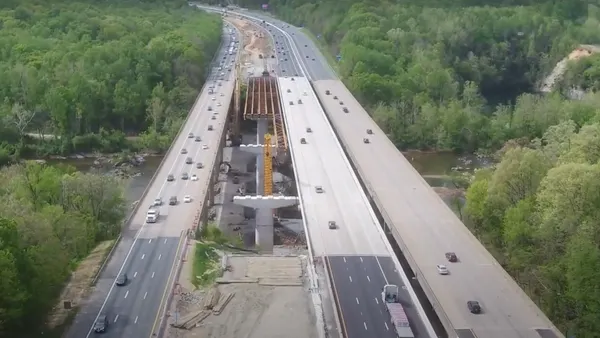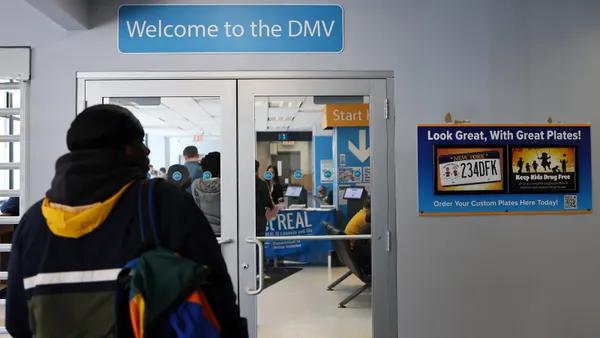Dive Brief:
- A new guide from the New York City Mayor’s Office of the Chief Technology Officer will help government agencies, nonprofit partners and corporations start their own "Moonshot challenges" to test new ideas that can solve public problems.
- The free, downloadable guide — designed with Cornell Tech, the city-based graduate campus of the university — offers the city’s strategy for “selecting, defining, and drafting” approaches to challenges, according to a press release.
- "With our first Climate Moonshot challenge, we brought together creative and brilliant minds to revolutionize electric vehicle charging in our city," said Mark Chambers, Director of the NYC Mayor’s Office of Sustainability. "With the public Launchpad, we can help unlock solutions to urgent, all-hands-on-deck problems everywhere."
Dive Insight:
In an interview with Smart Cities Dive earlier this year, former NYC Chief Technology Officer Miguel Gamiño said the Moonshot challenges represented "the mayor [and] administration's citywide goals. Things like citywide connectivity, climate change action, the U.S. Census, those big citywide issues or priorities." The top-down approach of the challenges allowed tech companies to work towards a common goal, but also think of applications that could be more broadly applied.
The two Moonshot challenges have tackled big issues: broadband connectivity and climate change. The first set the goal of bringing 5G to Governors Island, on the southern end of Manhattan, with Fiberless Networks beating out the competition and planning to continue expanding 5G coverage. The second award, supporting the city’s goal of reducing greenhouse gas emissions by 80 percent by 2050, went to German company Ubitricity for a plan to turn light poles into electric vehicle charging stations.
The toolbox will allow other cities and even private partners to replicate the challenges, building on a trend of using competitions to gin up new ideas. Cities are increasingly using hackathons to let tech enthusiasts and civic organizers dig into vast realms of data; Columbus, OH, for example, used one this spring to find solutions for transportation problems. New York City opened up its data hub for a tech competition, resulting in projects around tree survival rates and explaining the city budget.









